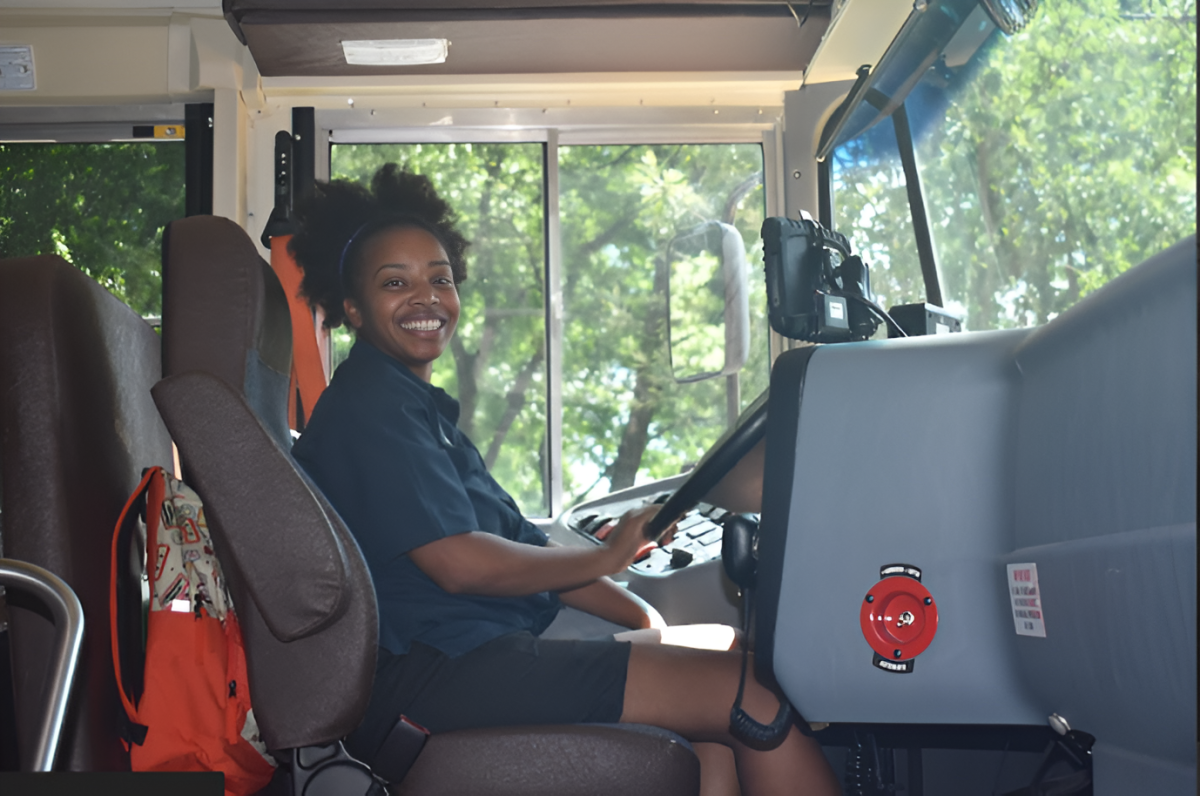Long known for its high concentration of Fortune 500 companies, Georgia did not have a reputation as a place where film companies make movies and TV shows. That changed in 2008 when Gov. Sonny Perdue signed the Georgia Entertainment Industry Investment Act, which gave a 20 percent tax credit for all qualified productions and an additional 10 percent credit for including a Georgia logo in the final product.
Over the past six years, more than 90 film companies have filmed on location in Georgia. These companies generated $5.1 billion in economic impact in fiscal year 2014 according to the Georgia Film, Music and Digital Entertainment Office. This is a sharp increase from production companies investing only $3.3 billion in Georgia in fiscal year 2013. For Atlanta Public Schools, this new source of revenue by renting out school properties is a welcome opportunity, and not only as a source of revenue.
“[Filming] showcases our facilities as well as brings in extra money for the district,” said Crissi Calhoun, director of accounting for Atlanta Public Schools.
From 2001 to 2008, a total of eight productions were filmed on APS property, generating $38,320 in revenue. Since 2008, 11 productions have been filmed on APS property, raising a total of $34,200. According to the Georgia Film, Music, and Digital Entertainment Office, 158 feature films and television shows were shot in Georgia in fiscal 2014 alone.
The amount of money film companies pay to use APS facilities varies based on the types of rooms used and the time spent filming on campus. For example, the movie Ride Along filmed at Grady from Nov. 20 through 25 in 2012 and paid APS $3,575. While on campus the company utilized the football field, at a cost of $150 a day, and the cafeteria $250–for the first three hours–along with other locations.
Although the district certainly accepts the rental fees it receives from production companies, the money doesn’t have much of an impact on the annual budget.
“Our operating budget is $595 million for each year for general funds,” Calhoun said. “We’ll take every bit of [the revenue]. We’re delighted that people want to use our facilities … but it’s not something that we look at separately from a reporting standpoint.”
Not only does movie filming in Georgia and at APS schools bring recognition to the state and district, but it also allows students to get involved in the process of making a movie. When Ride Along was filming, casting personnel from the company asked students to sign up to be extras in the film.
“The experience taught me what I wanted to do in the future,” former student Ronnie Perez said. “[There were] long hours every day and a lot of people, but at the end of the day I felt awesome that I wasn’t scared of being an extra, and I don’t regret it.”
Perez even got a chance to meet and interact with Kevin Hart, who starred in the movie. She said being able to talk to Hart was a once-in-a-lifetime experience that she will never forget.
“When I was doing a cafeteria scene, Kevin Hart came up to me,” Perez said. “He said I looked like a zombie, and we started to exchange jokes with each other. I told him he was short, because looking at him–only 5-foot-2–I felt pretty tall. He laughed and told me thanks for helping out.”
Meeting a celebrity in Georgia isn’t an anomaly anymore. Of the movies filmed in Georgia in 2013, many were blockbuster hits, including The Hunger Games: Catching Fire, Anchorman, and Prisoners. Among the TV shows were AMC’s The Walking Dead, CW’s Vampire Diaries, and Family Feud. APS locations provide the setting for movies like We Are Marshall, Ride Along, and shows such as Teen Wolf and Necessary Roughness. The frequent use of APS sites as a film location is a main reason why Georgia is being heralded as the “Hollywood of the South.”
In order to film on an APS location, production companies must navigate a long but necessary process.
“When the film companies first contact me they’re doing scouts, so a part of [the filming process] is if they can find what they’re looking for,” said Carla Pennyman, facilities coordinator for Atlanta Public Schools. “Sometimes they may not like what they see, and if so they don’t extend that scout.”
If a company is interested in filming at a particular school, Pennyman said the next hurdle is getting the script cleared. If a script contains elements deemed inappropriate to be filmed on APS property or that don’t fit with the system’s core values, the process ends there. The next issue for many companies is the availability of the sites.
“We don’t allow [film companies] to film while school is in session,” Pennyman said. “It would have to be done at night or on weekends and sometimes that’s prohibited for them because they work a five-day week.”
Finally, if the timing can be worked out the arrangement has to be approved by the principal of each school to make sure there are no academic or athletic events that would interfere with the production company filming during that time.
Pennyman says the facilities office often loses potential deals with movie companies during the process but they retain enough to make it profitable for the district. She also said her office has noticed a marked increase in the number of inquiries from companies since the tax exemption bill was passed in 2008.
Filming in Georgia has become mainstream and opened the door for raising money and notoriety.
“I feel as if Atlanta is growing so much bigger [in the film business] and it’s great to see,” Perez said. “We have such amazing talent here. Now you don’t even have to go to New York City or L.A. to be in a movie.”






